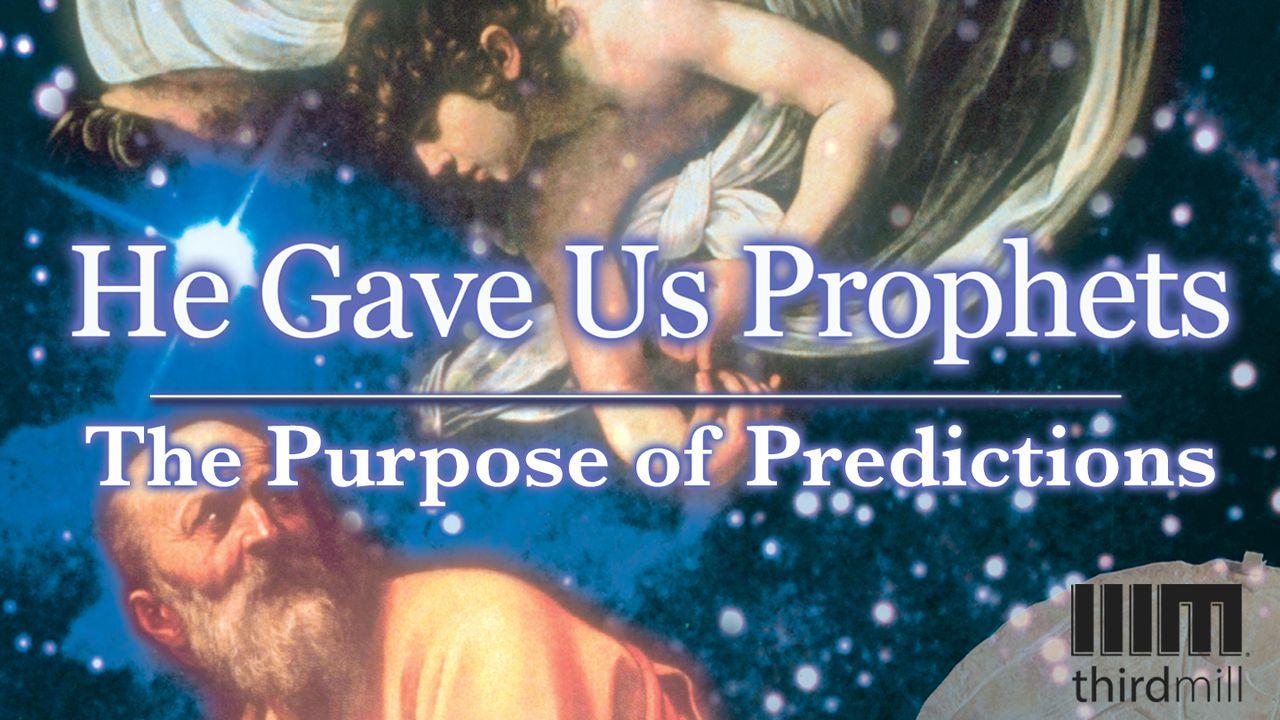He Gave Us Prophets: The Purpose of PredictionsMuestra

Example #2: Jonah 3
The story of Jonah is familiar to us. We know that God sent Jonah to the city of Nineveh to announce judgment to come. In Jonah 3:4 this is what Jonah says:
Forty more days and Nineveh will be overturned.
What could be simpler than this prophecy? Jonah announced that the city of Nineveh had only forty more days before it would be destroyed. There were no “ifs,” there were no “ands,” and there were no “buts.” But what happened? The rest of the chapter tells us. The king of Nineveh and the people along with their animals put on sackcloth and ashes in repentance of their sins. The king announced in 3:7-9:
Do not let any man or beast, herd or flock, taste anything; do not let them eat or drink. But let man and beast be covered with sackcloth. Let everyone call urgently on God. Let them give up their evil ways and their violence. Who knows? God may yet relent and with compassion turn from his fierce anger so that we will not perish.
Put simply, an intervening historical contingency of repentance took place before the prophecy could be fulfilled. The people humbled themselves in repentance before the Lord. And what was the result of this historical contingency? In 3:10 we read these words:
When God saw what they did and how they turned from their evil ways, he had compassion and did not bring upon them the destruction he had threatened.
The fulfillment of Jonah’s prediction was tremendously influenced by the repentance of Nineveh. He later complained to the Lord in this way in 4:2:
I knew that you are a gracious and compassionate God, slow to anger and abounding in love, a God who relents from sending calamity.
Even as he gave his prediction, Jonah knew that God might not carry out the destruction of the city. In fact, it was not until over one hundred years later that Nineveh was destroyed by the Babylonians.
From the general principle of Jeremiah 18 and these two specific examples, we see that many times the contingency of human choice influenced the ways that prophecies were fulfilled. Sometimes God reversed a judgment or a blessing; sometimes He would soften a blessing or even lessen a judgment; and other times He would increase judgments or increase blessings, depending upon how human beings responded to the prophetic word.
Escritura
Acerca de este Plan

This reading plan explores four topics related to prophetic words about the future: God's sovereignty, human contingencies, degrees of certainty, and desired outcomes.
More
Planes relacionados

Más Que Palabras: Gracia

¿Qué Nos Pasó En El Edén?- Psicología De La Caída

De La Vergüenza a La Seguridad

Dios Está en Control

Grupos Pequeños: La Gestión Del Líder

Renueva Tu Mente

La Compasión Por Encima De La Crítica: Ver La Ansiedad Desde Una Nueva Perspectiva

Una Oración Bíblica Por Los Esposos

Transformados a su imagen
